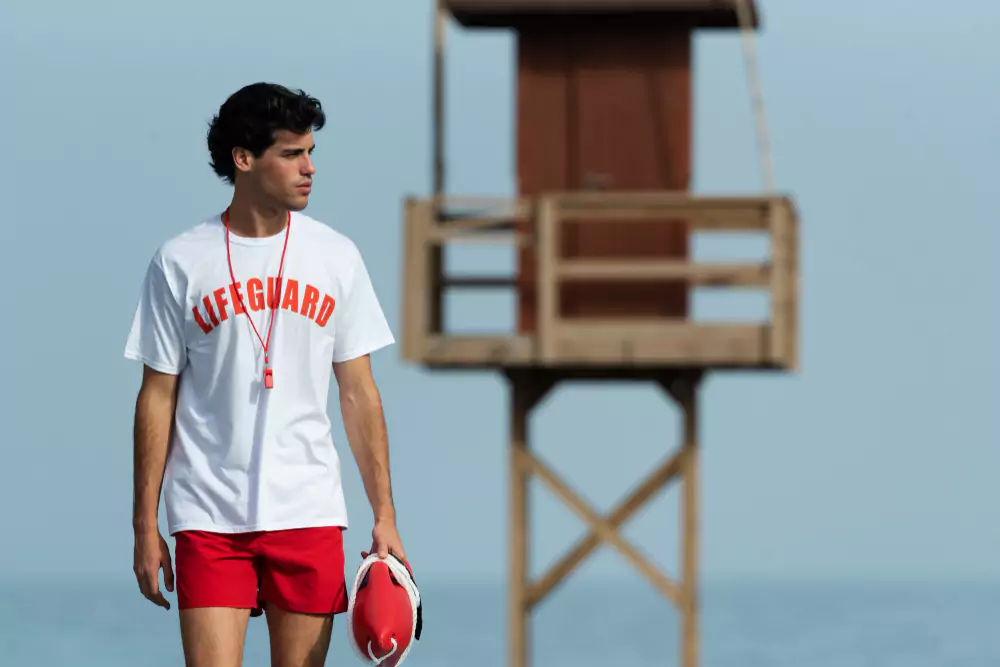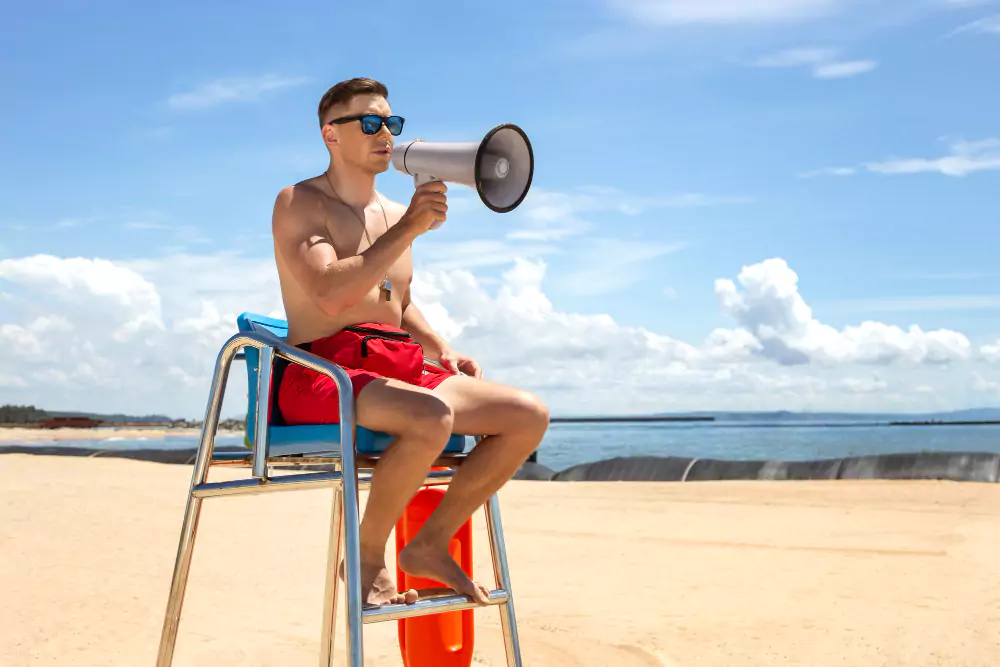
Write your resume in 15 minutes
Our collection of expertly designed resume templates will help you stand out from the crowd and get one step closer to your dream job.


In this article, we’ll break down exactly how to get a lifeguard job in the U.S. without certification. You’ll learn where to find beginner-friendly roles, what to expect from on-site training, and how to make your application stand out, even with no prior experience.
Steps for Getting a Lifeguard Job Without Certification
While many lifeguard positions require certification in advance, there's a growing number of employers that are willing to certify new hires as part of the job offer. Here's how to find them, and get hired.
1. Look for “Will Train” or “No Experience Needed” Postings
Not all lifeguard jobs are the same. Public pools, city rec departments, and large employers like the YMCA or American Pool often post entry-level lifeguard positions with phrases like:
- “Proper training provided”
- “No certification needed to apply”
- “We’ll pay for your certification”
These jobs typically involve a conditional offer: you’re hired on the basis that you complete the certification course they provide (sometimes before your first day, sometimes during your first week).
Where to look:
- YMCA career pages
- City or county recreation websites
- Pool management companies like American Pool, Premier Aquatics, or USA Pools
- Local hotel resorts or country clubs
- Summer camps
- Water parks
- National chains like Great Wolf Lodge or Lifetime Fitness
2. Understand the Requirements You’ll Still Need to Meet
Even if you don’t need to be certified upfront, you will need to meet basic physical and age requirements. Most employers require that you:
- Are 15 years or older (some accept 16+ only)
- Can swim 200 to 300 yards without stopping
- Can tread water for 2 minutes
- Can retrieve a 10-pound brick from 10 feet deep
You may be tested on these during the first week or as part of the onboarding course. It’s smart to start practicing now, even before applying.
3. Get Comfortable With Lifeguard Terminology and Expectations
You don’t need to know it all as a lifeguard starting out, but understanding the basics will show initiative. Start by familiarizing yourself with:
- The primary responsibilities of lifeguards (surveillance, prevention, emergency response)
- What CPR, AED, and First Aid training includes
- Common rescue techniques and pool area safety procedures
This knowledge helps you sound confident and capable during interviews, even if you’re brand new.
4. Write a Focused Resume and Cover Letter (Even With No Experience)
Even entry-level jobs need a resume. Highlight transferable skills like:
- Communication
- Responsibility
- Focus and attention to detail
- Athletic ability or team sports
- Volunteer experience
5. Apply Early (Especially in Spring)
Most summer lifeguard roles start hiring between February and April. If you apply early, you have a better shot at getting a training-inclusive position before the spots fill up.
Early applicants often get priority for the best locations and schedules, which can mean more flexible hours and better pay. Late applicants may find only certified roles remain, especially at public pools or competitive beaches.

6. Ask Directly About In-House Certification
If a job post isn’t clear, ask. Many employers don’t highlight this upfront. When contacting them, say:
Be polite and clear. It shows initiative and maturity, which are qualities they’re already looking for.
7. Complete Lifeguard Training Classes (Paid or Free)
If you're offered a position, your employer will typically enroll you in:
- Red Cross Lifeguard Certification
- Ellis & Associates or
- YMCA Lifeguard Training
Courses last 3 to 5 days and include both classroom and in-water training. If they’re not paying for it directly, some may reimburse the cost once you complete a certain number of shifts or timed events.
Still no job offer? Consider paying for certification yourself to open up more opportunities. Community centers, YMCAs, and some high schools offer budget-friendly courses.
8. Consider Indoor Pools, Hotels, and Less Competitive Locations
If you're not a professional lifeguard yet, you’ll often find more opportunities for non-certified applicants at:
- Indoor pools or smaller hotel pools
- Country clubs in suburban areas
- Neighborhood associations
- Locations with lifeguard shortages
These spots are more likely to be flexible about upfront certification, especially if you’re available to work weekends or full-time. They often have lower turnover rates, which means you could build longer-term relationships and get on-the-job training more easily. Plus, these environments tend to be less crowded and more supportive for beginners learning the ropes.
9. Prepare for Interviews and Skill Tests
Expect to talk about:
- Why you want to be a lifeguard
- How you stay focused for long periods
- What you’d do in a stressful situation
If you’ve done team sports, babysitting, or camp work, bring that up because it shows responsibility, leadership, and reliability, which are key traits in lifeguarding.
Be ready to talk about how you stay calm under pressure and work as part of a team. Some employers may ask you to demonstrate swimming or brick retrieval tasks during the interview phase. Practice makes perfect, especially if you're aiming to pass a timed swim test on the spot.
10. Get Ready for Orientation and On-the-Job Training
Once hired, you’ll go through several hours of orientation and hands-on training. This will likely cover:
- Water safety
- Aquatic emergency action plans
- Whistle signals
- Deep water rescue techniques
- CPR and first aid drills
- Role-playing dangerous situations
- Scanning techniques and rotation procedures
Take it seriously. Lifeguards are responsible for lives, so it’s a high-trust job, even for beginners. Pay attention, ask questions, and stay alert.
Final Thoughts
You don’t need a certification in hand to start your journey as a lifeguard. With the right timing, the right questions, and a bit of hustle, you can land a job that includes training (and even pays you to get certified).
It’s more than just a summer gig. Lifeguarding builds focus, responsibility, and leadership. And it looks great on any resume. So grab your goggles, start practicing your laps, and find an employer who’ll help you take the plunge into the best job for you.

















